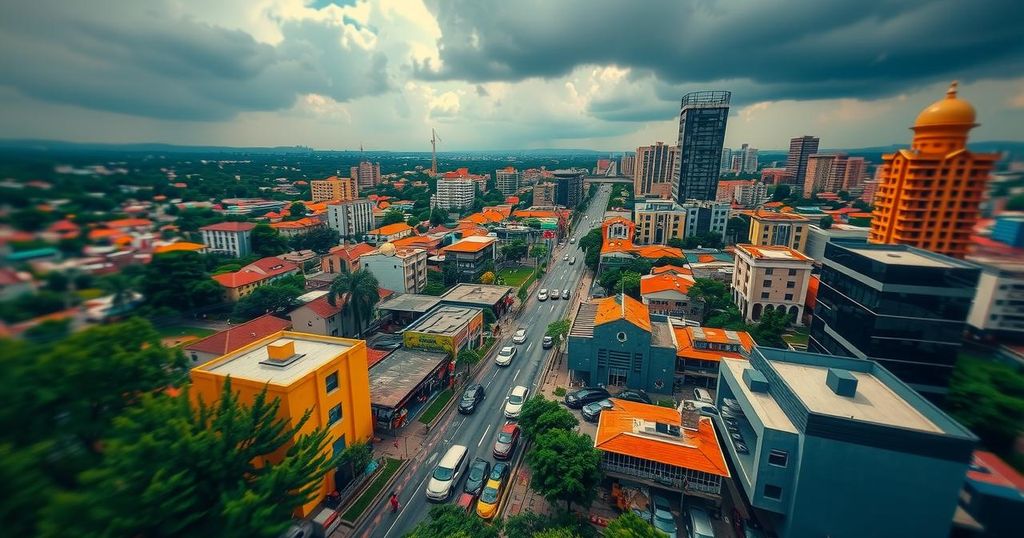Ghana’s Democracy: A Discourse on Political Promises and Economic Realities
In an interview, Professor Godfred Bokpin highlighted that Ghana’s democracy is dominated by unfulfilled political promises. With the upcoming 2024 elections, he emphasized the disconnect between ambitious campaign proposals and financial realities, cautioning voters against disappointment. His comments included criticism of the Free SHS policy, which, while increasing enrollment, has failed to enhance educational quality adequately.
In a recent interview, Professor Godfred Bokpin of the University of Ghana Business School asserted that Ghana operates within a framework characterized primarily by political promises rather than actual implementation. With the upcoming 2024 elections approaching, various political parties have released their manifestos, prompting significant discourse among voters. A notable proposal is the former President John Dramani Mahama’s initiative aimed at establishing a “24 Hour-economy.” Professor Bokpin emphasized that while political parties project ambitious plans, they inherently recognize the limited financial capacity to fulfill these commitments post-election. He warned Ghanaians to be cautious about potential disillusionment stemming from unmet pledges, noting that there exists insufficient fiscal space to support many of the proposed initiatives. He stated, “Our democracy is one of a politics of promises… Ghanaians should be very careful because disappointment lies ahead. We don’t have the fiscal space to implement a number of the proposals that the political parties have put out there. They cannot, and they know.” Furthermore, Professor Bokpin criticized the Free Senior High School (SHS) policy, acknowledging that while it has resulted in increased enrollment, it has not substantially improved the quality of education. He pointed out that although enrollment numbers may seem remarkable, this alone does not equate to educational excellence. “We may have checked the box in terms of quantity. But that alone is not sufficient,” he concluded.
The discussion of politics in Ghana, particularly in the lead-up to elections, often revolves around the commitments made by various political parties. These manifestos are expected to reflect the needs and aspirations of the electorate; however, critical voices, such as that of Professor Godfred Bokpin, suggest that many of these promises may not be feasible given the country’s financial realities. The contradiction between what is promised and what can actually be delivered raises concerns about the integrity and function of Ghana’s political landscape, particularly regarding public education and economic promises. This backdrop is crucial for understanding Professor Bokpin’s sentiments and his warning regarding the potential for disillusionment among voters.
Professor Godfred Bokpin’s critique sheds light on a significant issue within Ghana’s electoral politics: the gap between promises made by political parties and the ability to deliver on those pledges. His observations regarding the limitations of fiscal capability resonate deeply in the context of the upcoming elections, urging Ghanaians to approach political promises with skepticism. Moreover, his commentary on the educational policies underscores the importance of focusing not just on enrollment figures but also on the quality of education, a factor vital for the country’s future development.
Original Source: www.ghanaweb.com




Post Comment